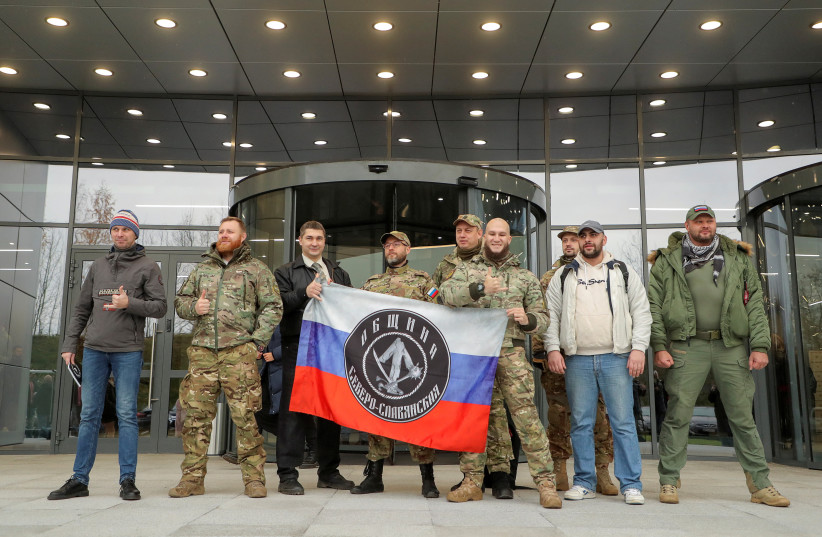Yevgeny Prigozhin, who mounted a brief mutiny against the Kremlin in June, was killed on Wednesday when a private jet flying from Moscow to St. Petersburg crashed near the village of Kuzhenkino, killing the three pilots and seven passengers on board, according to the Russian Aviation Authority.
“Hero of Russia, a true patriot of his motherland, [Prigozhin] died as a result of the actions of traitors to Russia,” the Wagner Group of mercenaries that he led announced on its Telegram channel.
Whether the deaths of Prigozhin and his right-hand man, Wagner commander Dmitry Utkin, were caused by foul play ordered by the Kremlin is already the subject of speculation. But who was Prigozhin and what is his legacy?
Why was Yevgeny Prigozhin? What is the legacy of the Wagner boss?
He was born an only child on June 1, 1961 in Leningrad (now St. Petersburg), Russian President Vladimir Putin’s home town. Both his father, who died when he was nine, and his stepfather, a ski instructor who played an important role in his life, were Jewish, making him eligible for aliyah under the Law of Return.
His stepfather helped him to break away from a criminal career and open his first hot dog stand, which he built into a restaurant and catering empire that provided services to the Kremlin, earning him the title, “Putin’s chef.” Putin was so taken with his floating restaurant on the Neva River that he hosted foreign dignitaries there.

Prigozhin established the Wagner Group as a private military company before Russia’s first invasion of Ukraine in 2014. It was known as Wagner because of the call sign used by an early commander besotted with the composer whose works had been appropriated for propaganda by Nazi Germany.
Aside from Ukraine, Wagner also earned a reputation for brutality across Africa and the Middle East in its quest to advance the Kremlin’s agenda.
Prigozhin also allegedly operated “troll farms” or “bot factories,” which used accounts on social media to spread pro-Kremlin views. The US, EU and UK all imposed sanctions on Wagner and its leader.
The US accused him of interfering in the 2016 presidential election and the 2018 midterm elections. Former FBI director Robert Mueller, who investigated claims of collusion between Donald Trump’s campaign and Russia, concluded that Prigozhin’s Internet Research Agency (IRA) conducted a social media campaign to support Trump and disparage his election rival, Hillary Clinton.
Prizozhin was a key player in Russia’s invasion of Ukraine in 2022, as his thousands of fighters (estimates range from 20,000 to 50,000) spearheaded the military onslaught in strategic areas, such as Bakhmut. But as the war effort faltered, Prigozhin became increasingly critical of Russia’s military leadership.
On June 23, he ordered Wagner to launch an armed rebellion against the Russian military leadership. In what was termed a “march for justice,” they captured the Russian city of Rostov-on-Don and advanced toward Moscow in what appeared to be the beginning of a coup against Putin. The Russian president was enraged, calling Prigozhin a traitor and pledging to punish the Wagner rebels for treason.
But suddenly Prigozhin called off the rebellion and, after negotiations with the Kremlin mediated by Belarus leader Alexander Lukashenko, agreed to move to Belarus in exchange for criminal charges against him and his fighters being dropped. After a three-hour meeting in the Kremlin, Putin set Prigozhin free, and just two days before the plane crash, Prigozhin – in full commando gear – released a new Wagner recruitment video in Africa. “We’re working,” he declared. “Making Russia even greater on all continents, and Africa even freer.”
Prigozhin revealed in an interview in 2011 that he had once written a book for children in which the protagonist “helped the king save his kingdom” and then went on to do “something truly heroic.” He was a cruel warlord who did Putin’s dirty work, and then sought to redeem himself before caving. His most notable legacy, however, may be in revealing Putin’s vulnerability at a time when the Russian leader needed more than anything to project strength amid the stalled Ukraine offensive.
Yevgeny Prigozhin will go down in history as a powerful Russian figure who almost changed the course of history.
